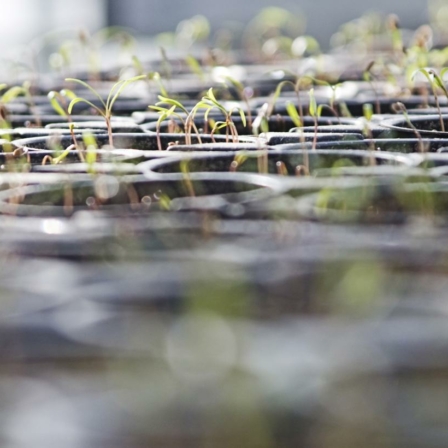THE FUTURE OF INDUSTRY
The Finnish industrial sector is changing into a service-intensive industry in a global market. Specialisation and innovation play an important role in this transition, and the nature of jobs is changing.
Sustainable well-being for Finland
Over the coming years, Finland will need to create at least 200,000 new jobs in the private sector. This is the greatest challenge facing the Finnish economy. In addition to social and ecological balance, sustainable well-being requires financial balance. Naturally, good jobs are important for individual well-being as well. New growth areas could emerge from research at universities and cooperation between major companies as well as industrial family businesses that are profitable but avoid taking risks.
Many businesses in Finland are facing the same situation as KONE Corporation in the mid-1960s: eat or be eaten. At the time, KONE was a medium-sized company mainly focusing on the domestic market. With poor profitability, the company had two strategic options: to be acquired by a large international company or to go global through corporate acquisitions.
KONE managed to acquire a larger competing company in Sweden, which marked the beginning of an international success story. At some point in nearly all sectors, centralisation begins to take place through acquisitions, and KONE started to participate in this development early enough. Restructuring enhances competence development, but acquistions also involve considerable risks.
Growth potential
Compared to many other countries, Finland is lacking in large medium-sized businesses – that is, companies with sales between EUR 100 million and 1,000 million. On the other hand, Finland has a reasonable number of healthy businesses within the range of EUR 10 million to 100 million in sales, and these companies offer considerable growth potential. Active corporate restructuring would present relevant growth opportunities for many Finnish businesses. However, acquisitions involve risks and challenges that call for risk financing. Banks, pension funds and governmental financial institutions should work together to ensure that financing is available for corporate acquisitions.
Sitra’s Growth Programme for the Mechanical Engineering Industry has produced four books that discuss the development of the Finnish industrial sector as well as the related challenges, opportunities and solutions, including competitive abilities based on expertise.
- Mechanical Engineering Makes For Successful Networks, Sitra/Edita 2009
Hannu Hernesniemi and Timo Nikinmaa (eds.)Accumulated over decades, expertise serves as a strong foundation for success. Internationalisation is vital for subcontractors in manufacturing and procurement in particular. In addition, success requires an optimal combination of production in Finland and low-cost countries.
The book features ten business cases that illustrate subcontractors’ opportunities for growth and internationalisation as well as main suppliers’ expectations. All of the cases show ways to improve the product, accelerate the production process or reduce costs. This is exactly what main suppliers expect from their key subcontractors, in addition to reliable and competitive deliveries.
Through commercialised expertise that stands out, a company can attract new international customers. Finnish subcontractors have traditionally been dependent on a single customer or only a few customers, which clearly is a weakness.
- Industrial Finland: Renewal After Crisis, Sitra/Edita 2010
Eero Eloranta, Jukka Ranta, Pekka Salmi and Pekka Ylä-AnttilaDo industrial enterprises have a future in Finland? When the book was compiled in the summer of 2009, the Finnish industrial sector seemed to be undergoing structural changes, and industrial production was plummeting. Factories were being shut down, and employees were being laid off. Production was relocated to low-cost countries – and, once relocated, would never return.
However, even though jobs in production will continue to decrease, industrial companies will not disappear. Their operations will change: they need to adopt customer-focused approaches, look for growth opportunities in services and make use of the opportunities global competition creates in production and procurement. They must also be able to anticipate changes in the market and consumer behaviour.
Production jobs in the Finnish industrial sector are decreasing, but expert work in international business is increasing. This presents challenges not only to the industrial sector, but also to the Finnish education system.
What new export business will emerge to replace the fading industrial production in Finland? How can industrial renewal be enhanced? Do we have special resources to aid industrial development? Are there obstacles? What kind of business opportunities will technological breakthroughs and other market changes create? How can our global companies be encouraged to develop new operations and jobs in Finland?
- A Finland of Many Solutions: From Dreams to Jobs, Sitra/Otava 2011
Riitta Korhonen and Pekka Salmi (eds.)What are future jobs made of? This book features eight practical studies of potential new jobs in Finland. All sectors need better solutions, but Finland has what it takes to become a leader in sustainable and multi-sectoral renewal. How can the Finnish business and industrial sectors best respond to the challenges presented by a changing world? Which emerging business operations are growing rapidly?
New success factors include passion, shared goals, commitment and linking users to production in decentralised networks. In addition, Finland’s competitive assets include a well-functioning society. Common challenges include applying international top expertise to Finnish operations.
The book highlights everyday examples of potential success stories in the coming decade. It focuses on building technology, water expertise, well-functioning factories, forests, nutrition, entrepreneurship and high quality. The book begins with an analysis of labour market challenges. The nine authors, influential representatives of the Finnish financial sector, also shed light on their personal motives.
Masters of the Value Chain: Mechanical Engineering and Global Competition, Taloustieto Oy/Sitra 297
Mika Pajarinen, Petri Rouvinen and Pekka Ylä-AnttilaThe global economic crisis brought the rapid growth of Finnish mechanical engineering to a halt. Production and exports have recovered somewhat, but are still far from their pre-crisis levels. Based on a study commissioned by Sitra and the Federation of Finnish Technology Industries, this book shows that Finnish mechanical engineering companies have as many opportunities to succeed as do, for example, Swedish, German and Austrian firms.
Key success factors include producing intelligent machinery, including software in machines and creating added value. Many Finnish companies are advanced in these respects, but there are more opportunities. Added value is increasingly created in value chains, which are decentralised around the world. The ability to create added value largely determines national growth and well-being.
The future of industry theme was part of Sitra’s Growth Programme for the Mechanical Engineering Industry (2008-2011). More information on the theme is available from Sitra’s Communications on-call service, tel. +358 40 548 0794.




LATEST